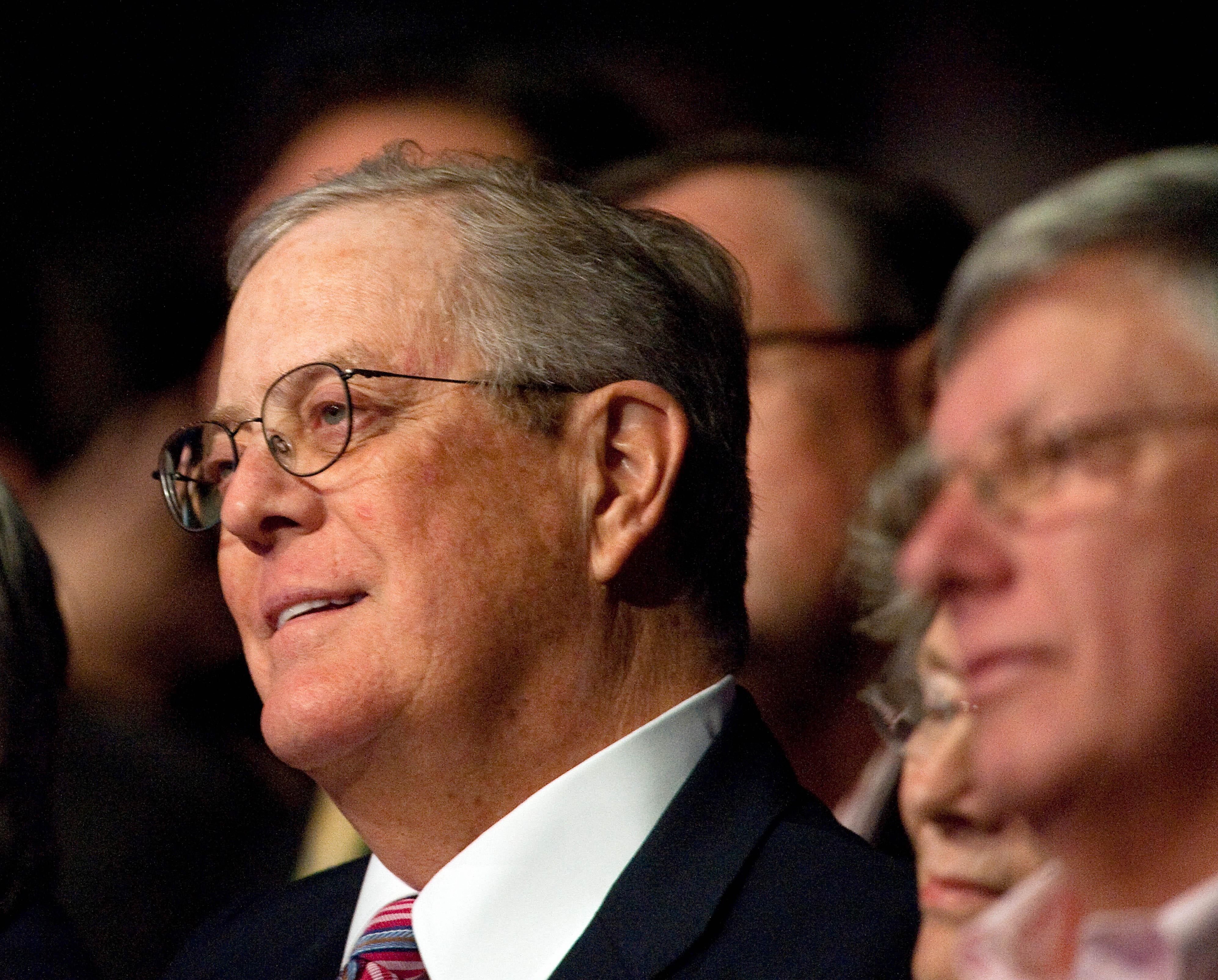The bigger media story today is, of course, the Department of Justice’s assertion that James Rosen was a “co-conspirator” in a national security leak. Most people would call Rosen a “reporter,” not a conspirator; anyway, the vile charge was published by the Washington Post but never acted upon.
But Jane Mayer’s long study of how David Koch reacted to a documentary that didn’t flatter him is worth reading, too. Generally speaking, the state is a greater threat to press freedom than the hyper-wealthy. The state can put you in prison; the wealthy person can’t. What the wealthy person can do, as Mayer reports, is wield outsized influence in a media organization (WNET, public television), get a documentary off the air, then fib about the process. The article tells two stories; the first one offers the most vivid picture of how Kochworld handles PR. The dispute centered on the airing of an Alex Gibney documentary that featured David Koch (and his family) as one of several wealthy subjects who shared an address in New York.
Shortly before “Park Avenue” aired, Melissa Cohlmia, the chief spokesperson for Koch Industries, sent WNET a two-paragraph statement criticizing the film as “disappointing and divisive.” Cohlmia acknowledges, however, that neither she nor Koch had watched it. WNET aired the statement, unedited, immediately after the film. Cohlmia said that she based the critique on the trailer.
The Kochworld media strategy is simple: Annihilation through snark. Ask Kochworld for comment, and you either get nothing or you get crumbs. Publish the story, and Kochworld hits you for whatever reason might be handy. In February, for example, Politico’s Ken Vogel published a careful story about the Koch’s post-election “reboot.” In it, he mentioned that a California watchdog was “trying to unmask the original source of a mysterious $11 million donation that was funneled through a key Koch conduit in the weeks before Election Day to a California political committee boosting a 2012 ballot measure to restrict union political activity and opposing a separate ballot proposition to raise taxes.”
Two days later, Cohlmia and KochFacts (the organization’s PR catchall site) published a condemnation of Vogel – labeled “a former employee of the left-leaning and George Soros-funded Center for Public Integrity” – that included e-mails Vogel had sent to Koch spox and e-mails he’d sent to other people who’d apparently forwarded them to the mothership. The main beef: Vogel’s story was unethical and incorrect, and didn’t include this statement from Koch PR:
We have been on the record, since November 5th 2012, as definitively not involved in the Prop 32 issue in California. We did not support, either directly or indirectly, this ballot initiative which would have restricted public and private sector employees’ rights to contribute to candidates.
Vogel, in an e-mail KochFacts included in its trove, politely pointed out that “we did not make an ‘incorrect assertion’ – or any kind of assertion – that the Kochs or Koch Industries took a stance on Proposition 32, nor did we make any assertion that the Kochs or Koch Industries ‘contribute[d] to any group with the intent of passing or defeating Proposition 32 in California.’” Koch PR could make its ask, but Politico wouldn’t comply.
That looked bad enough at the time. Kochworld’s correction was lawyerly, not an outright lie.
Mayer caught the flack in a lie.
Gibney noted that he had asked to interview the Kochs while making “Park Avenue,” but they had refused. Cohlmia initially denied this, but after Gibney’s office provided me with the relevant e-mails she acknowledged that she had been contacted.
Now: Given that Cohlmia’s job is to push back against “inaccurate” Koch stories, wouldn’t a move like this damage her credibility? Apparently it would. On February 18 (a Saturday!), KochFacts ran a pre-buttal to Mayer’s story accusing her of “left-leaning bias, baseless accusations, and numerous inaccuracies” in reporting, of writing “screeds,” of publishing “based on research by a ThinkProgress blogger.”
Her latest submission, soon to be published, will be another attempt to smear us while advancing her partisan agenda. We don’t precisely know the content of her story. However, based on her questions to us, we believe it will be an attempt to promote a fleeting PBS show that aired six months ago – one on which she collaborated and in which she appeared. The show attacked David Koch and Charles Koch, with Mayer making an appearance as an interviewee.
We also believe Mayer will work hard to make the case that should Koch purchase the Tribune newspapers, as is rumored, we would use those papers to advance a particular agenda. This assertion, of course, is made with no basis in fact or history to support such a claim.
Right, if only there were some basis for that wild assertion! If you’re trying to establish your credibility as a possible media owner, it would be good to prove you can differentiate between the truth and a lie.
